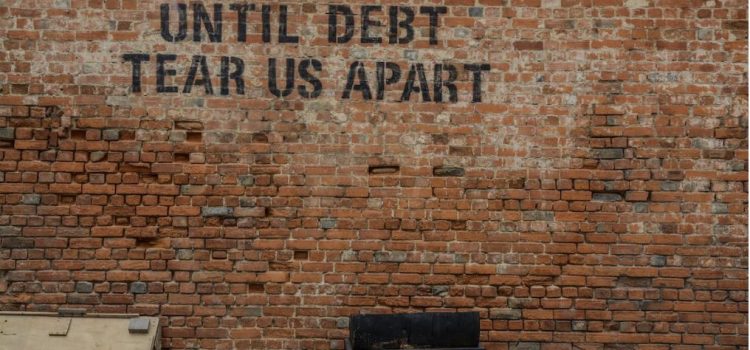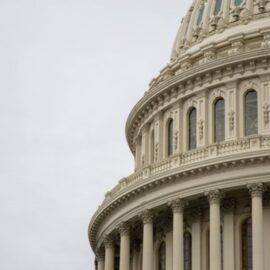
This is a free excerpt from one of Shortform’s Articles. We give you all the important information you need to know about current events and more.
Don't miss out on the whole story. Sign up for a free trial here .
What is the debt ceiling? Why is defaulting on the country’s debt so bad? Will Congress and the White House reach a deal to raise the debt ceiling by June?
Analysts say that Congress and the White House must reach a deal to raise the $31.4 trillion debt ceiling by June to prevent the US government from defaulting on its debt. With the clock ticking and Democrats and Republicans both refusing to budge on their positions, there’s no deal in sight.
Keep reading to learn why the debt ceiling is so important and why Congress and the White House are disagreeing over it.
The Race to Raise the Debt Ceiling
Early June. That’s the “X-date” by which some analysts say that Congress and the White House must reach a deal to raise the $31.4 trillion debt ceiling to prevent the US government from defaulting on its debt and sending the economy into freefall. But with the clock ticking, a greater-than-ever Democrat-Republican divide, and basic negotiations seemingly out of reach, there’s no deal in sight.
What Is the Debt Ceiling?
The debt ceiling is the limit on how much money the US government can borrow. Congress implemented the measure during World War I to give the Treasury Department unfettered authority to borrow money up to a predetermined amount. Legislators have raised the debt ceiling 78 times since 1960—usually without fuss. But an increasingly divided Congress has turned the once routine process into a tortured one.
Wall Street’s Role in Debt Ceiling Negotiations
Wall Street’s confidence in Congress’s ability to reach a debt ceiling deal is an important driver for legislators to come to an agreement, because Wall Street finances the country’s debt by buying Treasury securities that fund the government. As a result, Democrats and Republicans are keeping a close eye on investors’ reactions to the current debt ceiling standoff—a perhaps challenging task given contradictory reports that investors either aren’t batting an eye or are deeply concerned about the standoff. Still, each party hopes that Wall Street’s fear of the worst will push the other toward its preferred outcome:
- Democrats hope that as investors grow more worried about the standstill, Republicans will raise the debt ceiling.
- Republicans hope that growing anxiety on Wall Street will incentivize President Biden to negotiate on their recently passed debt ceiling bill.
Default Consequences
Analysts say the country will experience severe economic consequences if the US defaults on its debt, including:
- Ratings agencies will downgrade the country’s credit.
- The government won’t be able to pay military families or seniors receiving Social Security.
- Financial markets will tank.
- Businesses and average Americans won’t be able to borrow money.
- The country will enter a recession.
- Americans will lose jobs and face higher mortgage, car loan, and credit card payments.
Republicans’ Debt Ceiling Plan
- Raise the debt ceiling by $1.5 trillion for one year.
- Reduce spending to 2022 levels.
- Cap future federal spending increases at 1% annually for the next 10 years.
- Claw back unused Covid-19 funds.
- Eliminate President Biden’s student loan forgiveness programs.
- Repeal Biden’s green energy tax credits.
- Cut recently increased Internal Revenue Service funding.
- Tighten Medicaid and food stamp recipients’ work requirements.
- Expedite new oil drilling projects.
Democrats’ Response to Republicans’ Plan
President Biden maintains that he won’t negotiate with Republicans over raising the debt limit, arguing that Congress must present a clean bill to lift the debt limit to avoid economic disaster. However, he will negotiate with Republicans on spending and taxes if they decouple them from debt ceiling passage.
Looking Ahead
As Democrats and Republicans remain locked in a game of chicken with potentially catastrophic consequences, some say it’s time for President Biden to consider unilateral actions he can take to prevent economic disaster—for example, have the Treasury mint and deposit a trillion-dollar platinum coin with the Federal Reserve so the government can pay its bills.

Want to fast-track your learning? With Shortform, you’ll gain insights you won't find anywhere else .
Here's what you’ll get when you sign up for Shortform :
- Complicated ideas explained in simple and concise ways
- Smart analysis that connects what you’re reading to other key concepts
- Writing with zero fluff because we know how important your time is






